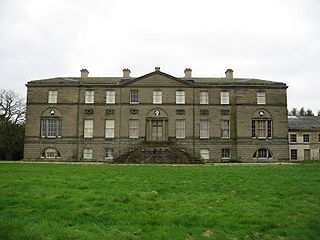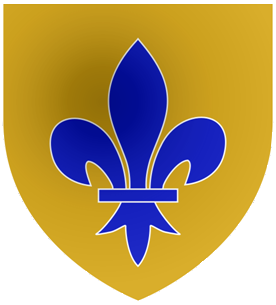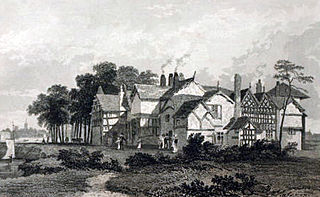There have been three baronetcies created for descendants of the ancient Lancashire family of Gerard.

There have been three baronetcies created for persons with the surname Booth, one in the Baronetage of England and two in the Baronetage of the United Kingdom. The 1916 creation remains extant, the 1835 creation became extinct in 1896 and the 1611 baronetcy has been dormant since 1797. The senior line of the first creation was elevated to the peerage as Baron Delamer and Earl of Warrington.

The Broughton, later Broughton-Delves, later Broughton Baronetcy, of Broughton in the County of Stafford, is a title in the Baronetage of England. It was created on 10 March 1661 for Sir Brian Broughton, of Broughton Hall, near Eccleshall, Staffordshire, High Sheriff of Staffordshire from 1660 to 1661 and the member of an ancient Staffordshire family.
Sir Francis Lawley, 2nd Baronet was an English courtier and politician who sat in the House of Commons between 1659 and 1679.
There have been three baronetcies created for members of the Mosley family, one in the Baronetage of England and two in the Baronetage of Great Britain. Only one creation is extant. Since 1980, the title has been held jointly with Baron Ravensdale in the Peerage of the United Kingdom.

Sir John Lister-Kaye, 1st Baronet was a noted English amateur cricketer in the late 18th century. His career spanned the 1787 to 1798 seasons and he played mainly for Marylebone Cricket Club and Surrey. He made 12 known appearances in first-class cricket matches.
There have been five baronetcies created for members of Clan Ramsay, four in the Baronetage of Nova Scotia and one in the Baronetage of the United Kingdom. The baronetcy in the Baronetage of the United Kingdom is extant as of 2022.
There have been two baronetcies created for the Pye family. Both are now depowered, with the baronetcy of Hone now part of the Wentworth Estate.
The Vernon family was a wealthy, prolific and widespread English family with 11th-century origins in Vernon, Normandy, France. Their extant titles include Baron Vernon and Vernon baronets of Shotwick Park.
Sir Denny Ashburnham, 1st Baronet was an English landowner and politician who sat in the House of Commons at various times between 1660 and 1689.

Sir William Portman, 6th Baronet FRS was an English politician who sat in the House of Commons between 1661 and 1690.

Sir Thomas Proby, 1st Baronet of Elton Hall, Huntingdonshire was an English politician who sat in the House of Commons between 1660 and 1685.

Sir Nicholas Mosley, also spelt Mosly and Moseley, was a manufacturer of woolen cloth, who subsequently became lord of the manor of Manchester, and a Lord Mayor of London for the year 1599 to 1600.
Sir John Trott, 1st Baronet of Laverstoke, Hampshire was an English politician who sat in the House of Commons from 1660 to 1672.
Sir William Powell, 1st Baronet was an English politician who sat in the House of Commons in 1660.

Sir Hugh Pollard, 2nd Baronet was an English soldier and MP elected for Bere Alston in 1640, Callington in 1660, and Devon in 1661. He supported the Royalist cause in the English Civil War.
Sir Edward Mosley was an English lawyer and politician who sat in the House of Commons between 1614 and 1624.
William Grey, 1st Baron Grey of Werke was an English politician who sat in the House of Commons from 1621 to 1622. He supported the Parliamentary cause in the English Civil War.
Sir Charles Wheler, 2nd Baronet of Birdingbury, Warwickshire, was an English cavalry officer who served in the English and Spanish armies. In 1667 he was elected a Member of Parliament for constituency of Cambridge University.

Sir John Bland, 5th Baronet of Kippax Park, Yorkshire and Hulme Hall, Lancashire, was a British landowner and politician who sat in the House of Commons from 1713 to 1727.









